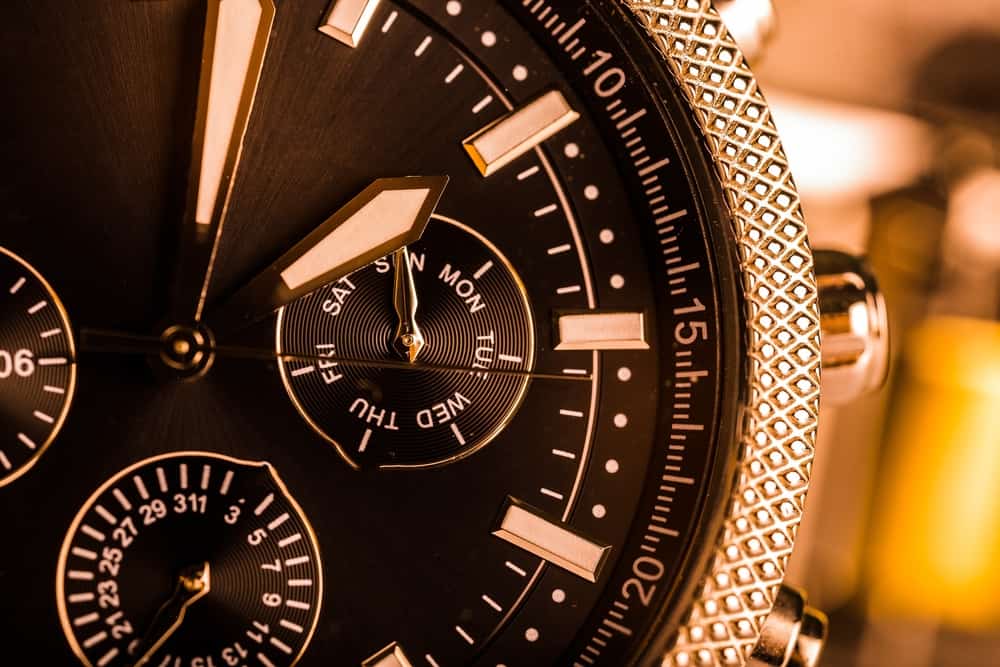“The report of my death was an exaggeration.”
That famous statement describes a fate shared by both American writer Mark Twain and the anachronistic wristwatch.
When cellphones began to saturate the world to the point where everyone had one shoved in their back pocket, the common refrain became that the wristwatch would simply disappear. Who would need a watch when they could check the time on their phone?
But despite all the great things that your smartphone can now do, people are still wearing and buying watches. In fact, that wonderful little device — which is nearly 150 years old — continues to remain popular as watch enthusiasts grab them up for their aesthetic appeal, the unique complications that tell you far more than the time but also the date or possibly the current moon phase, and the handcrafted art that they represent.
What’s more, watches are a popular investment among collectors. In November 2016, a Patek Philippe wristwatch shattered previous records when it was sold at auction for an astounding $11 million.
Luckily, you don’t need several million set aside to begin collecting watches. But it is important to have the right bit of advice before jumping in. That’s why I’ve reached out to an expert…
I met Anuj Arora when I was in London this past December, attending an investor day event at Stanley Gibbons. He is an investment portfolio manager for Stanley Gibbons and has a deep knowledge — and love — of watches. During the presentation, he gave some interesting details on collecting watches as well as showed off some of his own personal collection.
He has generously agreed to answer a few questions for me.
Jocelynn: Thanks so much for joining me, Anuj. I’ll have to admit that when it comes to collecting watches, I always considered this the domain of the extremely wealthy.
Anuj: You don’t have to be incredibly wealthy to start acquiring them. It’s a common misconception that you must be a big spender to make an entry into this market.
Ultimately, it is not a question of how much you can invest, but rather how you formulate your investment choices. I believe it is important that you always approach your investment by selecting an authentic watch in good condition. As with all investment-grade material in tangible assets, the key to a successful investment is quality above everything else.
Jocelynn: So, if I’m a new collector to watches, what’s the best way to start?
Anuj: When you start buying watches for the first time, I know that the jargon can be rather confusing. So it’s also worthwhile to invest some time in becoming familiar with the vocabulary. Whether it is a sports or dress watch, you need some knowledge of the mechanics and functionality of each item when considering an investment.
For example, historically, manual-wound movements have been considered to carry more appeal with collectors. However, self-wound automatic movements have their own je ne sais quoi. In the end, the rarity of one movement may depend on its complexity and the brand that created it.
In addition, a good beginning point would be to head over to Sotheby’s, Dreweatts & Bloomsbury or Christie’s Auctions to find some of the most lucrative deals on luxury timepieces. Building a portfolio of watches can be as complex as one based on stocks and bonds, but with access points like Dreweatts & Bloomsbury and investment advice from Stanley Gibbons Investments, it can be made very accessible.
Jocelynn: In your presentation in December, you stated that there are 62 luxury watch brands and more than 11,000 models and collections. How do you know what’s worthy of adding to your watch collection?
Anuj: The watch market is full of opportunities if one knows what to look for. It takes a good eye to know the difference between a smart investment and a poor investment.
If you are looking to invest in a watch, then rarity and condition should be your top priorities. I would encourage buyers to look for the best quality watch within their price range.
You should also look at complexity and, naturally, the brand. Even with contemporary watches, a good, established name will hold its value. Oftentimes, a name becomes renowned with the help of pop culture.
The Rolex Daytona, for example, has been produced since 1963, but it was only after being worn by Paul Newman in 1972 that collectors acknowledged its scarcity and unique aesthetics. Since then, it has become arguably the most collected watch on the market.
Jocelynn: What are some of the watch names that should be on a collector’s radar?
Anuj: Big, high-performing luxury brands offer the best investment opportunities … Patek Philippe, Vacheron Constantin, Audemars Piguet, Rolex, Breitling and Omega perform strongly at auction.
However, even though the market is dominated by these highly regarded brands, you should not forget about the smaller retailers. You never know what potential they may demonstrate further down the line. Minor manufacturers, such as Raymond Weil, Longines and Corum, have seen increased interest recently, though these are rare exceptions.
And exclusive watch manufacturers, such as Richard Mille and Greubel Forsey, are already showing real potential to become classics of the future. One of their watches may prove to be a profitable and wise addition to your portfolio.
A New Diversification Option
Watches are just one way of diversifying your wealth to include collectibles. As Ted Bauman has explained in editions of his newsletter, The Bauman Letter, it is critical to have some of your portfolio in collectibles that are not correlated to the market so that you can better survive potential downturns in the financial market.
If you’re interested in adding collectibles to your portfolio — such as stamps, rare and ancient coins, collectible historical documents, first-edition books and much more — the Stanley Gibbons team will be happy to help you.
Stanley Gibbons Group PLC is the world’s leading brand name in collectibles, with offices in London, the Channel Islands, Hong Kong and Singapore. Stanley Gibbons, which advertises with Banyan Hill, is the only major company promoting rare collectibles with investment contracts and well-defined exit options.
For more information, you can contact the Stanley Gibbons Investment Division at investments@stanleygibbons.com or by calling +44-20-7557-4452. You can also visit the site at www.stanleygibbons.com/investment.
Regards,

Jocelynn Smith
Sr. Managing Editor, Sovereign Investor Daily










